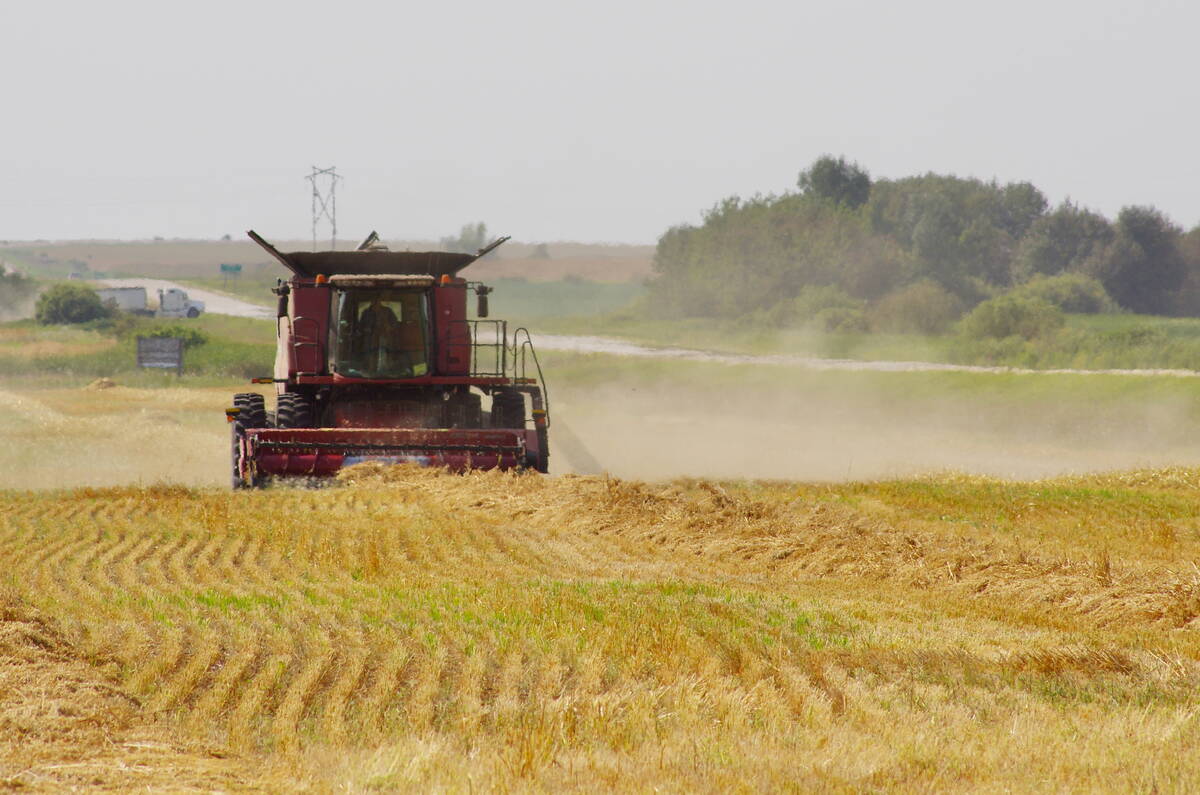Drought followed by flooding that has hit Manitoba in the last two years underscores the need for a federal program that promotes clean technology among producers, said Canada’s agriculture minister.
“It’s a big challenge, but Manitoba farmers are taking action to rebuild their resilience to extreme weather and climate change,” said Marie-Claude Bibeau during a recent news conference in Winnipeg.
Twenty-eight projects across Canada are expected to receive a total of $8.7 million as part of the latest round of funding under the federal Agricultural Clean Technology Program, she said. It includes a total of more than $2.5 million for five projects in Manitoba.
Read Also

Herbicide resistance sprouts in Manitoba’s wild oats
Farmers across Manitoba this fall are gearing up for the latest salvo in what, for many, has become a longtime battle to beat out wild oats.
Bibeau described how she visited cattle producers last summer in the province’s Interlake region who were devastated by drought.
“One farmer was brought to tears as he told us how he was forced to sell his cows due to the lack of feed, and this year, we have gone to the other extreme. Heavy rains and flooding have delayed or prevented planting for many farmers in the province.”
The program includes a technology adoption stream that ranges from green energy and energy efficiency to precision agriculture and bioeconomy solutions. It also provides funding for research, development, demonstration, and commercialization of agricultural clean technologies.
Ottawa recently added $329 million to the program, up from $165.7 million. The initiative has so far approved $42.3 million for 138 projects across Canada, said Bibeau.
Finding the best ways for farmers to cut greenhouse gas emissions and adapt to climate change is a complicated problem that will require extensive research, said Bill Campbell, president of Keystone Agricultural Producers.
He said in an interview that progress must be cautious to ensure producers aren’t led up blind alleys after making significant capital investments. Farming is a business, “and we need to be able to make money and we need to show that there is profitability in the steps and processes,” he said.
True North Foods near Carman, Man., will receive $1.39 million to install a rapid organic converter and rendering system. Seymour Farms Ltd. in Manitou and JDD Farms Ltd. in Gilbert Plains will be getting $132,728 and $193,143, respectively, to install new grain dryers.
For-profit applicants to the adoption stream must spend at least $50,000 to qualify to be reimbursed for up to half the cost of their projects. The high minimum threshold has been a concern for KAP because grain dryers are essential for many prairie farmers, said Campbell.
Federal carbon taxes have made them much more expensive to operate, he said.
“And so, I think that there would be wider adoption and wider acceptance if we didn’t have such high capital investments to make it work… and when we look at global food security and all of those aspects that have come to the forefront in this past year, grain drying may be a huge part of ensuring that we can feed the world.”
However, Bibeau said it is important that the program also funds the development of new clean technologies.
“And when (such initiatives) see the demand from farmers, they will worker harder and faster to develop these technologies and make them more accessible all across the country, so this is part of the strategy behind these incentives.”
As one of Canada’s leading pork producers, HyLife Ltd. in LaBroquerie, Man., received $266,992 earlier this year under the research and innovation stream to develop a mobile manure separator. The goal was to improve redistribution of manure phosphorus while reducing greenhouse gas production, said senior director of corporate sustainability Sheldon Stott at the news conference.
HyLife partnered with an equipment provider to design a trailer-mounted centrifuge system that can be transported to farms, “treating manure in the earthen lagoons and creating a valuable, dry, nutrient-rich fertilizer product,” said Stott.
“This product could be transported and sold easily and effectively into phosphorus-deficient areas of the province, bringing that nutrient where it needs to be.”
It eliminates the need for individual producers to invest millions of dollars on their specific sites, he said.
The remainder of the five new projects being funded in Manitoba under the adoption stream include $762,857 to install a biomass furnace at Rolling Acres Colony Farms Ltd. in Eden, Man. Enterprises Louis Balcaen Inc. in La Broquerie, Man., will receive $88,335 to buy precision agriculture technology.
Other new projects in Western Canada under both the adoption and research and innovation streams include four in Alberta that received a total of $949,907. Although one project in British Columbia received $162,043, none were funded in Saskatchewan.


















